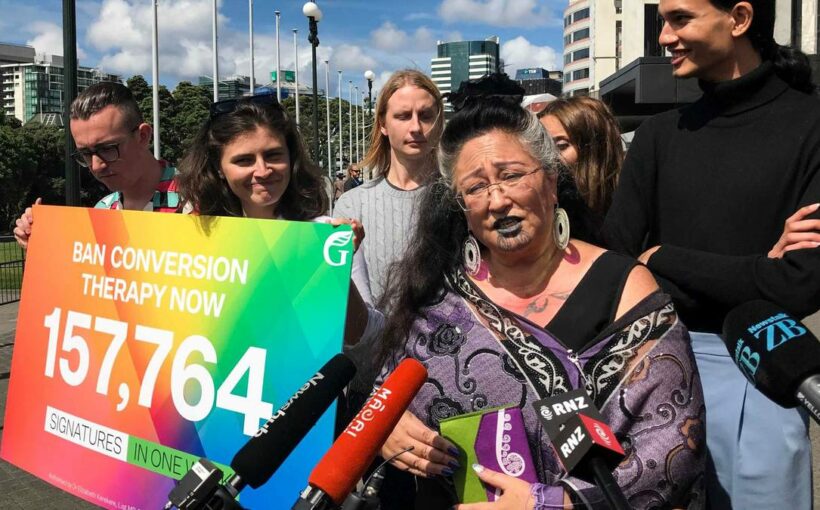OPINION:
Thank Jesus, Mary, and Joseph that the days of using “gay” as a pejorative are long gone. But how far have we come in a legislative sense?
Last week, the Conversion Practices Prohibition Legislation Bill passed its first reading despite the National Party’s efforts to change the wording so that parents would be protected from prosecution.
“Parents should be allowed to be parents and to explore sexuality and gender with their children,” Simon Bridges said, who supported the intent of the bill, not the specific legislative wording.
For those out of the loop – according to the NZ Justice Select Committee, conversion therapy is any practice or treatment that seeks to change, suppress, or eliminate a person’s sexual orientation, gender identity, or gender expression. This may include traditional counselling, therapy, or group discussion.
For now, the bill is off to a select committee, giving the public at large an opportunity to hold their peace, I mean, say their piece. Under the bill, it would be an offence to perform conversion practices on a child or young person aged under 18, or on someone with impaired decision-making capacity. An offence could lead to imprisonment.
Additionally, it would also be an offence (up to five years imprisonment) to perform conversion practices on anyone regardless of age where said practices have caused serious harm.
Civil redress would be available insofar as the Human Rights Commission would be able to consider complaints and provide services to facilitate a solution.
Failing that, people could take a claim to the Human Rights Review Tribunal where a declaration could be made of the wrongdoing, as well as an order to restrain further conversion practice, and an award of damages.
Why now?
The ramifications of conversion practices are huge insofar as it supposes sexual orientation or identity is a choice, and could be changed to suit heteronormative standards.
The research is harrowing. A San Francisco State University study found rates of attempted suicide by LGBTQIA+ young people whose parents tried to change their sexual orientation were more than double the rate of those who hadn’t experienced conversion therapy.
Suicide rates tripled for those who reported to have experienced conversion therapy at home and externally by therapists and religious leaders.
A 2020 study from the UCLA School of Law’s Williams Institute found that gay, lesbian, and bisexual people who experienced conversion therapy were almost twice as likely to experience suicidal thoughts and to have attempted suicide.
Back home, 17 per cent of 1178 trans and non-binary participants in a Waikato University survey reported that a health professional tried to change their identity at some point throughout their lives.
The Counting Ourselves survey – conducted in 2019 – found nearly a quarter of Asian participants said they had been sent by their family members to a therapist, counsellor, or religious advisor to stop or reverse their identity.
Why has it taken so long?
By its very nature it is arguably discriminatory, and contrary to the Bill of Rights Act, the Human Rights Act, the Health and Disability Commissioner Act, and the Guidelines to the Mental Health (Compulsory Assessment and Treatment) Act.
However, while the Human Rights Act and the Bill of Rights Act afford the right not to be subjected to torture or to cruel, degrading, or disproportionately severe treatment or punishment, they also provide protections around freedom of expression.
Namely, they allow for the freedom of thought, conscience, religion and belief, including the right to adopt and hold opinions without interference. To ban conversion practices could be interpreted as a form of interference, unless it’s demonstrably justified in a free and democratic society.
Where does that leave us?
New Zealand ranks eleventh on the Gay Happiness Index, and was the thirteenth country to legalise same-sex marriage. Seeing as conversion therapy has been denounced in the Australian state of Victoria, 20 states in the US, and Germany, for example, it’s time for us to step up and follow suit.
• Sasha Borissenko is a freelance journalist who has reported extensively on the law industry. Email: [email protected]
Source: Read Full Article

/cloudfront-ap-southeast-2.images.arcpublishing.com/nzme/V73XOTAVSQSIOMIYKBEPHRBNXM.jpg)